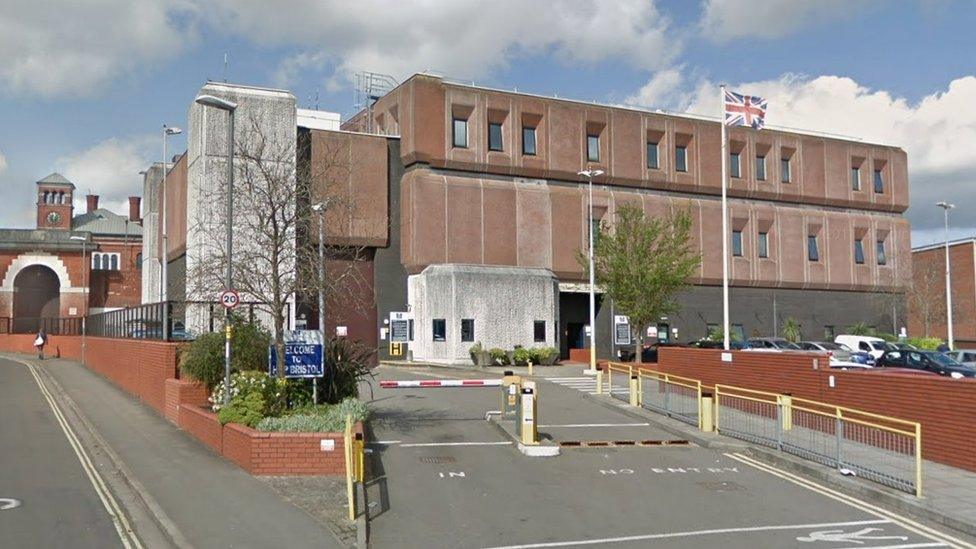Failings found in care of man who died in Bristol prison
- Published

Ashley Roberts was "a very vulnerable individual" who was "struggling in prison"
A "vulnerable" man who killed himself in prison had not been observed appropriately, a report has found.
Ashley Roberts, from Exeter, spent 11 weeks at HMP Bristol from 5 February 2020.
On 20 April, he was taken to hospital after attempting to take his own life in his cell. He died on 1 May 2020.
A report found appropriate observations did not always take place. Mr Roberts was arrested in 2020 and was awaiting trial at the time of his death.
He had personality disorders, autistic traits and a history of self-harm and attempted suicide, the report states.
Monitoring procedures
On 5 February, Mr Roberts appeared at court and was taken to HMP Bristol.
He was distressed that he had not returned to Exeter to be near his mother, and said he wanted to take his own life.
Staff opened suicide and self-harm monitoring procedures and he was subject to constant supervision.
The mental health team and neurodevelopmental service engaged with Mr Roberts to try to lessen his distress, but he continued to struggle.
Staff restrained Mr Roberts on numerous occasions to stop him harming himself.
Mr Roberts alleged that an officer had assaulted him during one of these restraints and submitted a complaint.
On 17 April, staff held a review and assessed Mr Roberts as low risk. He continued to be monitored on two observations an hour.
On 20 April, staff found him in his cell, after having attempted to take his own life.
Paramedics attended and re-established a pulse. Mr Roberts was taken to hospital, but he died on 1 May, after his life support had been turned off.
'Vulnerable individual'
The report found that Mr Roberts was a "very vulnerable individual" who was "very difficult" to manage in prison.
The report continues: "We found that staff did not always consider all known risk factors when determining Mr Roberts' level of risk to himself.
"We are also concerned that staff did not always record crucial information relevant to risk, did not always hold case reviews whenever there was an event which may have increased Mr Roberts' risk, and that appropriate observations did not always take place."
The prison investigated Mr Roberts' allegation of assault.
Although his complaint was not upheld, some concerns were that Mr Roberts had not been assessed by healthcare staff after the restraint and a body worn camera had not been used to record the incident.
The clinical reviewer concluded that Mr Roberts' clinical care was of a "reasonable standard" and "largely equivalent to that he could have expected to have received in the community".
The notable exceptions to this were a delay in examining a hand injury and the lack of a formal medication review when Mr Roberts refused to take his antidepressant medication.

Follow BBC West on Facebook, external, X, external and Instagram, external. Send your story ideas to: bristol@bbc.co.uk , external
Related topics
- Published19 February 2024

- Published17 October 2023
